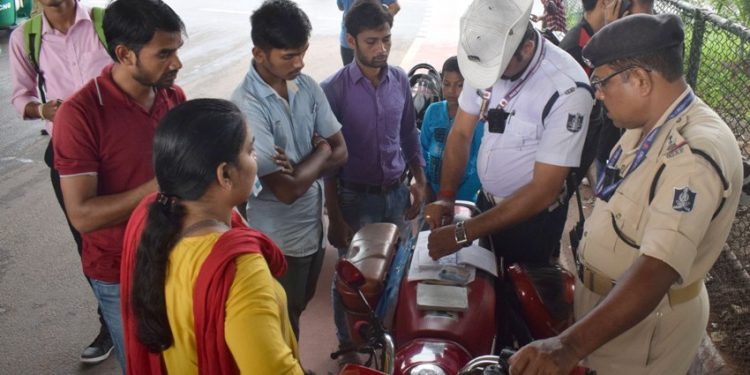The amended Motor Vehicles Act will be back in force from December 1. The state government had relaxed the new traffic rules for three months after public outrage over the penalties. But there has been criticism over the government’s move to temper the rules. On the other hand, the OHRC had, in September, sought government report on errant overloaded autos and drivers without licence still plying. It seems the dust did not settle. The skepticism over the MV Act’s efficacy as a proper deterrent to accidents hasn’t died down either.
Govt’s move will always be criticised
There will always be a criticism of the government’s move. There can be laws but we can’t implement them if they are draconian. We allowed the relaxation for the convenience of the people so that they can get the relevant documents, licenses and permits in the meantime. There has been no compromise in ensuring road safety. In the three months’ time, the requirements under the Motor Vehicles Act, such as having pollution clearance certificates, have been widely publicised so that people could be ready when the rules are enforced again from December 1.
— Pratap Deb, Spokesperson, BJD
MV Act purported for revenue collection
The Motor Vehicle Act doesn’t focus on some of the main factors apart from bad driving that have a huge role to play when it comes to road safety. For instance, improper road engineering, illegal parking and potholes also lead to accidents. If the state government found the penalties to be high, it also has every right under the law to amend the act. Instead of relaxing the rules for few months, I think the new Act should be rejected altogether. The newly amended Motor Vehicle Act is purported for enhanced collection of revenue and imposition of penalty in the name of road safety. Neither the central nor the state government has brought any positive steps when it comes to road safety. The Road Safety Policy of Odisha, 2015 has many pertinent points like providing emergency care, and if properly implemented, could be way more effective than the Motor Vehicle Act.
— Biswapriya Kanungo,Human Rights Activist






































